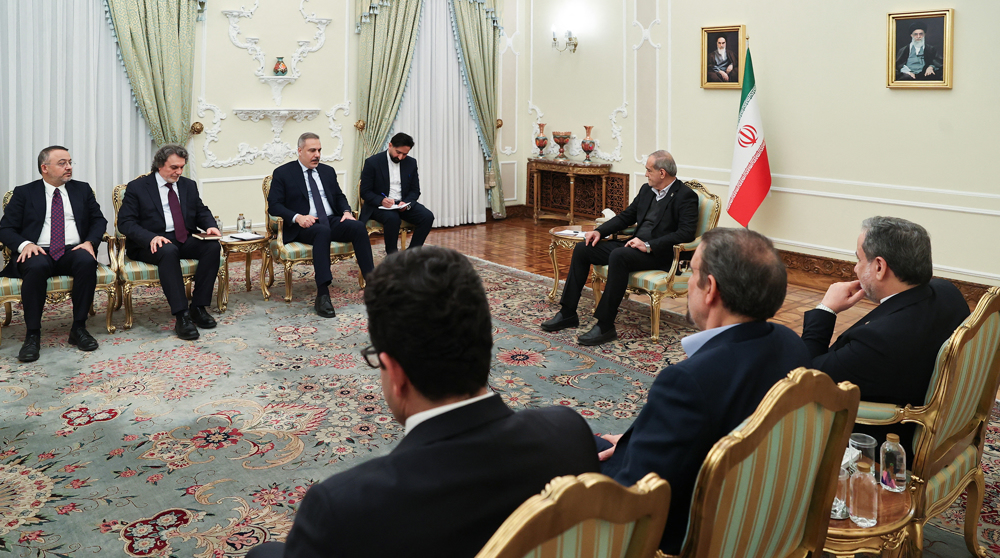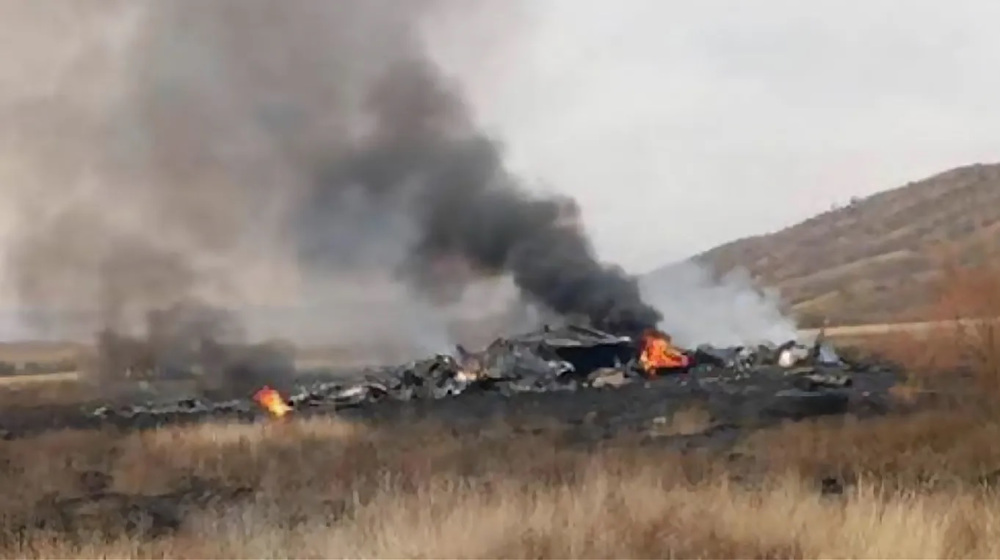Turkey unfazed by US sanctions threats over S-400 deal: Cavusoglu
Turkish Foreign Minister Mevlut Cavusoglu says Ankara does not fear US sanctions over its decision to acquire advanced S-400 missile defense systems, adding that his country is discussing a delivery date with Russia.
“No matter what sanctions there may be and which statement comes from the United States, we have already bought the S-400,” Cavusoglu told reporters in Ankara on Monday following a meeting with his Rwandan counterpart Richard Sezibera.
“Now we are talking about when the S-400 will be delivered to Turkey. It is not possible for us to give up on the purchase of the S-400,” he added.
“If there's an attack on Turkey tomorrow, we cannot expect NATO to protect us because NATO's capacity would only protect 30 percent of Turkey's airspace,” Cavusoglu said.
Turkey will no longer allow other countries to dictate its defense purchases, he pointed out.
The top Turkish diplomat further noted that Washington is isolated as it squeezes Ankara on the F-35 stealth fighter jet program.
“All decisions should be taken by consensus,” Cavusoglu said, reiterating that Turkey is also a partner to the program and has made large contributions.
“These kinds of steps taken by the US are not compatible with the partnership agreement or the law,” he said, adding that Washington failed to agree with any of Turkey’s proposals to resolve the issue.
Citing three unnamed people familiar with the matter, English-language Bloomberg television news network, reported on June 19 that US President Donald Trump’s administration is weighing three packages of sanctions against Turkey over S-400 purchase.
The sources underlined that the most severe package under discussion between officials at the National Security Council and the State and Treasury departments would all but cripple Turkey's troubled economy, and would be in addition to Ankara's exclusion from the F-35 fighter jet program.
The sanctions proposal with the most support would target several companies in Turkey’s key defense sector under the Countering America’s Adversaries Through Sanctions Act (CAATSA).
The US Congress passed the CAATSA against Russia in August 2017 over allegations of interfering in the 2016 presidential election. The law, among other things, imposes sanctions on countries and companies that engage in contracts to purchase weaponry from Russia.
Such sanctions would effectively sever Turkish firms from the US financial system, making it almost impossible for them to buy American components or sell their products in the US.
Moscow and Ankara finalized an agreement on the delivery of the S-400 in December 2017.
Back in April 2018, Turkish President Recep Tayyip Erdogan and his Russian counterpart Vladimir Putin said in Ankara that they had agreed to expedite the delivery of the S-400. At the time, it was said that the delivery could be made between late 2019 and early 2020.
A number of NATO member states have criticized Turkey for purchase of the S-400, arguing the missile batteries are not compatible with those of the military alliance.
They also argue that the purchase could jeopardize Ankara’s acquisition of F-35 fighter jets and possibly result in US sanctions.
The S-400 is an advanced Russian missile system designed to detect, track, and destroy planes, drones, or missiles as far as 402 kilometers away. It has previously been sold only to China and India.
Ankara is striving to boost its air defense, particularly after Washington decided in 2015 to withdraw its Patriot surface-to-air missile system from Turkish border with Syria, a move that weakened Turkey’s air defense.
Before gravitating towards Russia, the Turkish military reportedly walked out of a $3.4-billion contract for a similar Chinese system. The withdrawal took place under purported pressure from Washington.
UN condemns Israeli raid on UNRWA headquarters in al-Quds
Wife of martyred Palestinian doctor urges pressure on Israel to return his body
IranAir brings three grounded jets back to fleet
Medical conditions in Gaza remain 'as hard as ever' despite truce: MSF chief
Israel holding 32 Gaza detainees past their sentences: Advocacy group
VIDEO | Americans push for second phase, Zionists dragging feets
Iran begins trial of dual national charged with spying for Israel
Israeli forces raid UNRWA headquarters in al-Quds after UN extends mandate
























 This makes it easy to access the Press TV website
This makes it easy to access the Press TV website